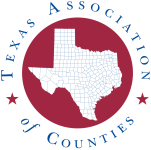FAQs
Continuing Education for Sheriffs
What is a Sheriff?
The sheriff acts as a conservator of the peace and the executive officer of the county and district courts, serve writs and processes of the courts, seizes property after judgment, enforce traffic laws on county roads and supervises the county jail and prisoners. In counties of fewer than 10,000 residents, they may also serve as ex officio tax assessor and collector.
What Does a Sheriff Do in Texas?
A sheriff in Texas has the following duties:
- Serves as a licensed peace officer and is responsible for enforcing the criminal laws of the state.
- Manages and operates the county jail.
- Provides security for the courts.
- Serves warrants and civil papers.
- Regulates bail bondsmen in counties with no bail bond board.
For more complete information about the responsibilities of a county sheriff and other county officials, see the "Guide to Texas Laws for County Officials."
Please note: Some duties performed by officials may vary within individual counties.
Sheriff Requirements
Sheriffs are required to attain 40 hours of continuing education every two years.
See the full continuing education requirements and moreCounty Sheriff Qualifications8
The County Sheriff must meet the following qualifications at the time of appointment or election:
- U.S. Citizen.
- Resident of Texas for at least 12 consecutive months.
- Resident of the county for at least six consecutive months.
- Registered to vote in the county.
- At least 18 years of age.
- Not have been finally convicted of a felony from which they have not been pardoned or otherwise released from the resulting disabilities.
- Not have been determined by a court with probate jurisdiction to be totally mentally incapacitated or partially mentally incapacitated without the right to vote.
Candidates for this office generally must meet the above qualifications at the time of filing.
For more information, see the Secretary of State Elections Division website.
Legal source: Local Government Code, Section 85.0025
8Vernon's Ann. Texas Const. Art. 5, §23; V.T.C.A., Election Code §141.001; Local Government Code §85.0011
Texas Commission on Law Enforcement (TCOLE) may require any sheriff who is not a commissioned peace officer to attend up to 40 hours of education within two to four years of taking office.
TCOLE Requirements - Continuing Education Deadlines for all Peace Officer Licensees
Commission Rule 217.11 Legislatively Required Continuing Education for Licensees requires that individuals appointed as peace officers shall complete at least 40 hours of continuing education training and must complete a training and education program that covers recent changes to the laws of this state and of the United States pertaining to peace officers every 24-month unit of a training cycle. Included within the 40-hour requirement are other legislative required topics. These requirements are listed below for your information. All peace officers must meet these requirements or their peace officer licenses will become inactive Aug. 31, 2019. A peace officer first licensed on or after January 1, 2011, must complete a basic training program on the trafficking of persons within one year of licensure.
Legislatively required continuing education requirements for the current training cycle for peace officers holding a Basic Certification are as follows:
| Course Topics | Course Topics | Deadline |
| Special Investigative Topics | 3232 or 3737 | 08/31/25 |
| Cultural Diversity | 3939 or 3737 | 08/31/25 |
| Crisis Intervention Training | 3840, 3841, 4001 | 08/31/25 |
*Note the above courses are mandatory, but can be used as part of the 40 hours required in either unit
| Requirement | Time Frame |
| 40 hours in the first unit - any topic(s) | 09/01/21 - 08/31/25 |
| 40 hours in the second unit - any topic(s) | 09/01/23 - 08/31/25 |
Programs that Qualify
Any approved by TCOLE.
Filing for Credit
Rosters are available at approved courses or academics. Make sure your name is on the roster. The rosters are returned to TCOLE at the end of the training and entered into the sheriff's records.
Legal source
Local Government Code, Section 85.0025
Open Government Training Information
Elected and appointed public officials are required by a state law to receive training in Texas open government laws. For more information on this training including free video training courses, check out The Office of the Attorney General website.
County Official Organizations
The Texas Association of Counties serves as the umbrella organization for various independent county official organizations in Texas. These organizations serve as an important resource for county officials for information, networking and advocacy.
The association for this office is the Sheriffs' Association of Texas.

See our full calendar of upcoming events
Designed and guided by county officials, our professionally planned educational activities also offer great opportunities to network with your peers.
Sheriffs and deputy sheriffs, police officers, and constables and deputy constables are all peace officers licensed by the state of Texas and have certain powers of arrest throughout the state.
Most wear distinctive uniforms or badges, drive clearly marked patrol vehicles and often perform similar job functions, but there are several differences, too. Many of these differences involve:
- Their primary jurisdictional boundaries
- The primary funding source for their particular agency
- Distinct differences in their duties as designated by the Texas Legislature.
Sheriff
A sheriff is a peace officer who holds public office; the voters in each county elect their sheriff once every four years.
The Texas Constitution mandates that one sheriff exist for each of the 254 Texas counties. Each sheriff has countywide jurisdiction. Sheriffs may appoint deputies and jailers to assist in the performing of their duties.
By statute, sheriffs’ duties include:
- Serves as a licensed peace officer and is responsible for enforcing the criminal laws of the state
- Manages and operates the county jail
- Provides security for the courts
- Serves warrants and civil papers
- Regulates bail bondsmen in counties with no bail bond board.
In addition, the sheriff transports prisoners to local courts from throughout the United States, transports juvenile offenders and mental health detainees throughout Texas, rounds up estrayed livestock in the county and performs many other duties.
The sheriff’s office is funded by local tax dollars administered by county commissioners court.
Police
A municipality may create and fund a police department but it is not required by law to do so. If created, the police jurisdiction extends only within the boundaries of the municipality they serve.
A chief of police is not elected. Either the municipality’s governing board or the city manager hires the chief of police and determines the length of their stay, as well as how many additional police officers to hire.
Police officers may enforce state criminal and traffic laws and local ordinances adopted within their jurisdiction. Police serve arrest warrants and as bailiff for the municipal court. Police are not required to keep a jail but may operate a municipal jail for housing misdemeanor violators or detainees awaiting transfer to the county jail.
Police officers do not have responsibility for transporting prisoners, serving civil process, rounding up estrays or conducting many of the other duties designated to sheriffs.
Constables
Constables are also peace officers whose offices were created by the Texas Constitution. They are elected to office once every four years. A county may have multiple constables but only one per precinct. The voters who reside within a particular precinct of the county elects the constable for that precinct and that constable’s primary jurisdiction is the geographic boundaries of that precinct.
Constables may appoint deputies who are peace officers to assist in performing their duties.
By statute, constables duties include:
- Serves as a licensed peace officer and performs various law enforcement functions, including issuing traffic citations
- Serves warrants and civil papers such as subpoenas and temporary restraining orders
- Serves as bailiff for Justice of the Peace Court.
Like the sheriff, the constable’s office is funded from local tax dollars administered by the county commissioners court.
Jurisdictional Overlap
Jurisdictional overlap occurs between county sheriff’s offices, municipal police departments and county constables as well as with the state highway patrol and state park rangers and the federal law enforcement agencies. These state and federal agencies frequently cooperate but each may investigate a criminal matter that occurs within their jurisdiction.
Coordinating Body
Texas Commission on Law Enforcement
6330 U.S. Highway 290 East, Suite 200
Austin, Texas 78723
Contact
TCOLE hours
(512) 936-7700
Texas Commission on Law Enforcement is the permanent contact for TCOLE hours.


